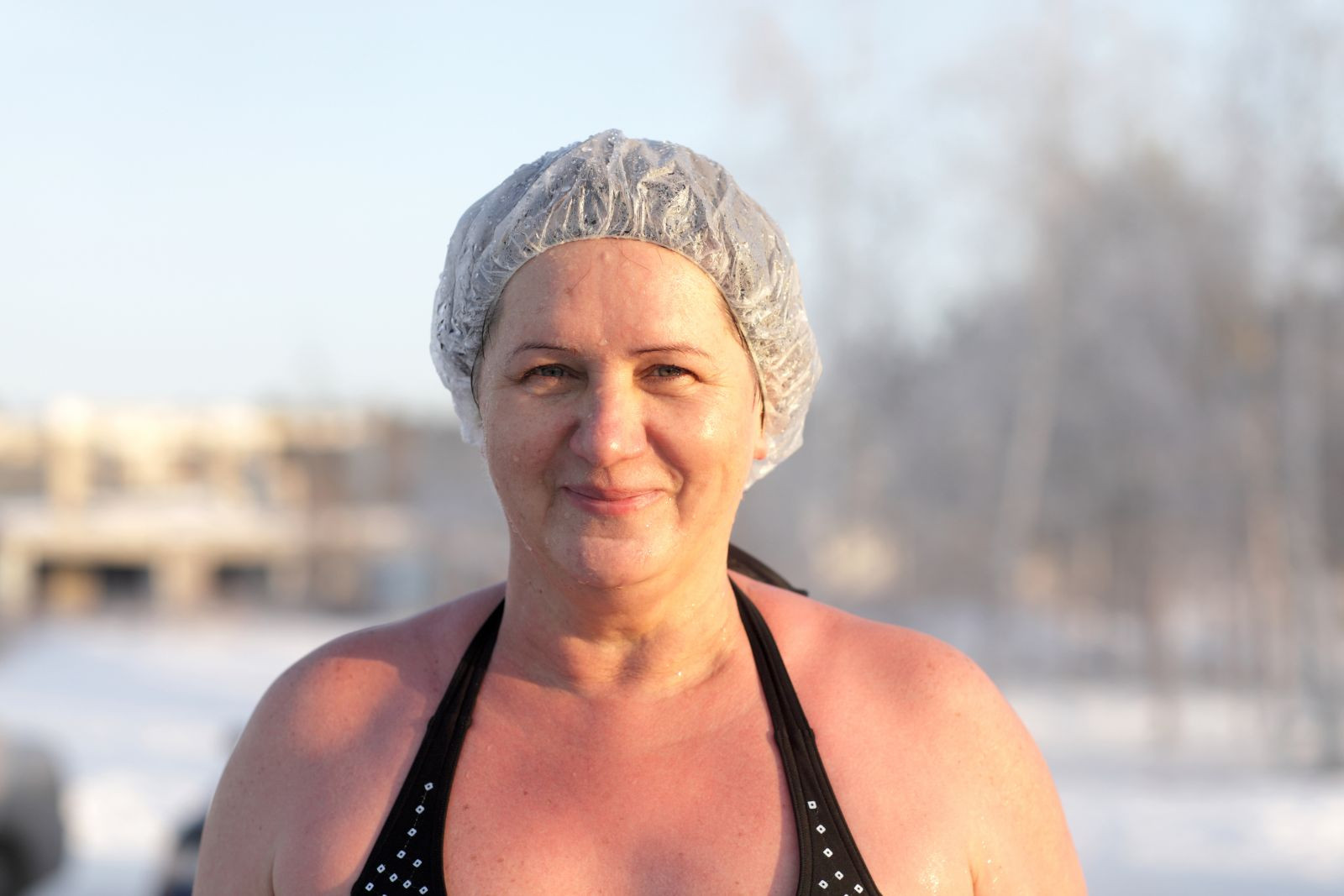Ask the doctor: Is swimming in cold water okay for my heart?

Q. I spend part of every summer on the coast of Maine. One of the things I love to do there is swim in the ocean for 20 or 30 minutes. The water is cold (55 F) but I don't mind. I'm almost 80. I had my mitral valve repaired five years ago, and my heart rate is sometimes irregular. Are my cold-water swims okay for my heart?
A. Swimming is an excellent exercise for the heart, arteries, lungs, and muscles. If you enjoy swimming in cold water and have been doing it for some time with no ill effects, it's probably fine for you. But your question worries me for a couple of reasons.
The human body is adapted for life on dry land and the downward tug of gravity. Immersing the body in water squeezes blood from the extremities into the chest. This makes the heart work harder and increases blood pressure. Holding your breath and putting your face in the water makes the heart slow down and also elevates blood pressure. This diving response, commonly called diving bradycardia (bradycardia means slow heart rate), is a well-studied phenomenon. It doesn't necessarily require depth — bradycardia and a spike in blood pressure can occur when the face is immersed in water even at the surface, as happens during swimming.
Cold water is my other concern. The shock of cold water against the skin triggers a fight-or-flight response. The adrenal glands pump out extra epinephrine (adrenaline) and other stress hormones. They cause blood vessels supplying the skin to narrow. This conserves heat, but it shifts even more blood to the chest, taxing the heart. Extra epinephrine also tends to disturb the heart's steady rhythm. This usually isn't a problem in someone with a healthy heart, but it could spell trouble for someone already prone to arrhythmias. In addition, the cooler the water, the greater the diving response, potentially leading to a lower heart rate and higher blood pressure. Some people respond so strongly to cold water that just putting their face in a bowl of cool water can make them pass out from a low heart rate.
Just because something can go wrong doesn't mean it will. You seem to be doing fine with your cold-water swimming, so I'm not going to rain on your parade and tell you to stop. But I would suggest that you always swim with someone who can pull you to safety and who knows how to do CPR. I also recommend that you be on the lookout for signs and symptoms of a slow heart rate or an arrhythmia, such as feeling faint or noticing irregular or "missed" heartbeats, and get out of the water if you notice something like this happening.
— Massimo Ferrigno, M.D.
Associate Professor of Anesthesia
Harvard Medical School
Brigham and Women's Hospital
Image: © Radist | GettyImages
Disclaimer:
As a service to our readers, Harvard Health Publishing provides access to our library of archived content. Please note the date of last review or update on all articles.
No content on this site, regardless of date, should ever be used as a substitute for direct medical advice from your doctor or other qualified clinician.















